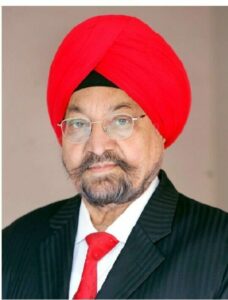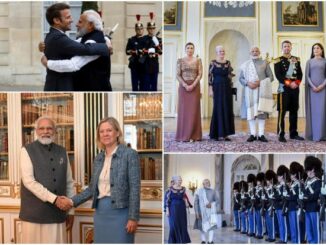
As Prime Minister Narendra Modi prepares to visit the United States from September 21 to September 23, anticipation is building around the potential significance of his engagements during this short but strategically important trip. According to a press note issued by the Embassy of India in Washington, D.C., the visit will feature a combination of diplomatic meetings, including the Quad meeting being hosted by President Joe Biden at his residence in Delaware on September 21, a notable address to the Indian diaspora in New York on September 22, and economic engagements with American business leaders. The focal points of Modi’s visit reveal much about the state of U.S.-India relations, as well as the complex political undercurrents that surround the trip.
However, Modi’s absence from the United Nations General Assembly (UNGA), originally part of his itinerary, has raised eyebrows in both Indian and global diplomatic circles. It is now confirmed that India’s External Affairs Minister, Dr. S. Jaishankar, will be representing India and addressing the General Assembly instead. This shift comes at a time when the world is grappling with major crises, including two wars—the ongoing Russia-Ukraine conflict, which now is two-year-old, and the Israel-Palestinian conflict, which has severely impacted the Middle East for almost a year. As the UNGA convenes to discuss these conflicts, as well as issues such as climate change, terrorism, and nuclear proliferation, Modi’s decision to skip the General Assembly remains unexplained, sparking speculation and debate.
Modi’s visit comes at a time of evolving geopolitics, particularly in the Indo-Pacific region, where both India and the U.S. share strategic interests. A key item on Modi’s agenda will be the meeting of the Quadrilateral Security Dialogue (QUAD) on September 21. The QUAD, which includes the U.S., India, Japan, and Australia, has increasingly focused on countering China’s growing influence in the region. While much attention will be paid to Modi’s bilateral discussions with President Joe Biden, the QUAD meeting symbolizes India’s growing role in regional security matters, especially as tensions in the Indo-Pacific continue to rise.
Modi is also expected to hold talks with American business leaders and chambers of commerce, emphasizing economic cooperation. India’s rapid economic growth and aspirations to become a $5 trillion economy by 2025 will likely be a significant theme of these conversations. Modi has consistently portrayed India as a key investment destination, with its burgeoning tech sector, rising middle class, and ambitious infrastructure projects making it an attractive partner for the U.S.
However, beneath the surface, there are subtler political calculations that could shape the tone and outcomes of this visit. As the U.S. gears up for its 2024 presidential election, Modi’s engagement with the Indian-American diaspora, especially in a politically sensitive environment, could have far-reaching consequences.
Perhaps the most significant—and politically charged—event of Modi’s visit is his address to the Indian diaspora at the Veterans Memorial Coliseum in Long Island, New York, scheduled for September 22. This address is being touted as “historic” by Modi’s followers, and it is expected to draw a large crowd from the Indian-American community, which has become a powerful force in U.S. politics. The Indian diaspora in the U.S. is both financially strong and politically active, particularly in states like New York, New Jersey, and Texas, which host large populations of Indian origin.
Many of these Indian-Americans, especially those aligned with Modi and his Bharatiya Janata Party (BJP), are ardent supporters of the Prime Minister’s policies and leadership. Referred to colloquially as “Modi bhakts” (devotees of Modi), these supporters are often affiliated with the global Hindutva movement, which shares ideological roots with the Rashtriya Swayamsevak Sangh (RSS), a Hindu nationalist organization that has been a cornerstone of Modi’s political career.
Notably, this address comes almost exactly four years after Modi’s famous “Howdy Modi” rally in Houston, Texas, on September 22, 2019, where he shared the stage with then-President Donald Trump. During that event, Modi famously endorsed Trump’s re-election bid with the slogan “Abki Baar Trump Sarkar” (“Next time, it’s Trump’s government”). While it remains to be seen whether Modi will issue a similar endorsement this time around, the timing of the event—just months before the U.S. presidential election—has led to speculation that Modi might subtly signal his preferences.
In the 2019 Houston rally, Modi’s open support for Trump marked an unprecedented moment in Indian-American political engagement. Modi’s presence and statements at that event were seen as a nod to Trump’s popularity among sections of the Indian-American community, particularly those who subscribe to conservative or nationalist ideologies. Many of Modi’s supporters in the U.S. are known to have voted for Trump in both the 2016 and 2020 elections, and several organizations affiliated with Hindutva have been active in Republican circles.
This year, the question arises: Will Modi once again throw his weight behind Trump, or will he maintain a more cautious approach, given the political sensitivities of openly supporting a candidate in a foreign election? The Indian government has generally refrained from commenting on U.S. internal politics, but Modi’s close ties with Trump, and the enthusiasm of his supporters, make it difficult to ignore the potential implications of his visit.
Several Indian-American organizations, particularly those affiliated with the Sangh Parivar (the broader family of organizations linked to the RSS), are expected to attend the Long Island event. These groups have been vocal in their support for conservative policies in the U.S., and many of them are rallying behind Trump’s candidacy once again. Given this backdrop, Modi’s address is likely to resonate with those who see him as a symbol of strong, decisive leadership, both in India and globally.
While Modi’s supporters in the U.S. might be eagerly awaiting his address, it is also worth noting the potential diplomatic challenges that could arise from any perceived political endorsements. The Biden administration has sought to strengthen ties with India, viewing the country as a key ally in its Indo-Pacific strategy. At the same time, Modi’s close ties with Trump could complicate these efforts, especially if his visit is seen as politically motivated.
Modi, who has built his political career on nationalism and strongman politics, is also navigating a complex domestic landscape. With elections approaching in India in 2024, Modi may use his U.S. visit to burnish his image as a global statesman, while also reaching out to the influential Indian-American community for political and financial support. His government has faced criticism from opposition parties in India, particularly over its handling of issues such as religious polarization, economic inequality, and rising authoritarianism. Modi’s address to the diaspora is likely to emphasize India’s achievements under his leadership, including its growing global stature and economic progress.
Prime Minister Modi’s upcoming visit to the U.S. will be closely watched, not only for its diplomatic significance but also for its potential political undertones. As Modi meets with President Biden, addresses the Indian diaspora, and participates in high-level discussions on global security and economic cooperation, the visit represents a critical moment in U.S.-India relations.





Be the first to comment